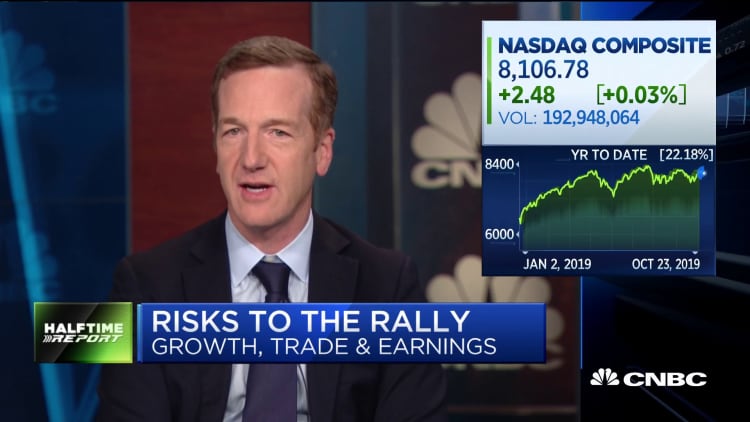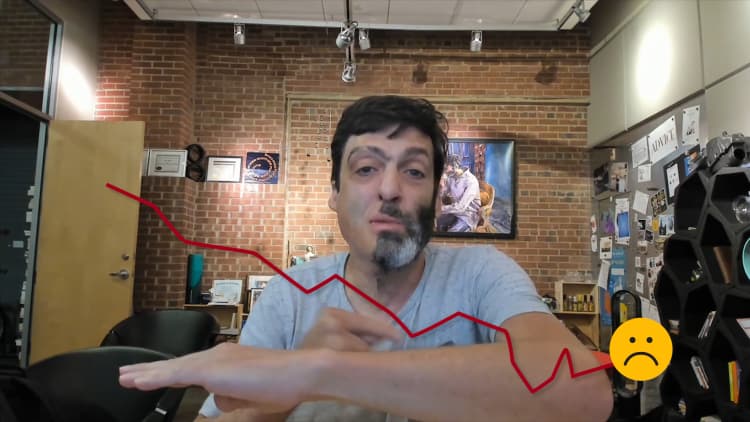The Dow Jones Industrial Average jumped to a record Monday, bringing its gain for the year to nearly 18%. But Morgan Stanley has a message for investors: don't expect anything near this return for the next 10 years.
The next decade could be a dismal one for both stocks and bonds, according to Morgan Stanley, which ran analysis on what current valuations for asset classes mean for future returns historically.
The traditional investor portfolio — which is made up of 60% stocks and 40% bonds — will return just 4.1% over the next 10 years, Andrew Sheets, chief cross-asset strategist at Morgan Stanley, calculated. That would be close to the 60-40 portfolio's lowest rolling 10-year periods of the past 20 years. It also would be rare looking back further with an expected return this low only observed on 4% of rolling 10-year periods going back to 1950.

Why so low? Such a weak portfolio return is likely after a decade of massive multiple expansion for stocks and a flood of money into bonds as central banks ease monetary policy to re-spark economic growth. These measures have led to the second-longest bull market for stocks on record. The bull market is now more than 10 years old. Over that time, the S&P 500 has returned more 13.8% annually to investors. Moving forward, however, strong returns could be hard to come by as valuations are near historical highs.
Valuation is an accurate forecaster
Valuation proves "far more accurate than any other variable in determining what the 5- or 10-year experience of an investor will be," Sheets said. "And at the moment, that experience looks challenging."
The S&P 500's trailing price-earnings ratio, Wall Street's preferred valuation metric, has grown to 19.6 from 16.9 this decade. The ratio has also remained close to 20 in recent years, a level market experts see as elevated.
Bonds have also been on fire since 2010. The benchmark 10-year Treasury yield has fallen from about 3.8% in early 2010 to roughly 1.77% boosting prices in turn. The iShares 20+ Year Treasury Bond ETF (TLT), which tracks the performance of longer-term Treasurys, boasts a return of more than 100% in that time. The TLT is up 14% this year.
These high valuations are in part a byproduct of central bank measures to reinvigorate economic growth after the financial crisis. The Federal Reserve cut interest rates to zero and launched three asset-purchasing programs (quantitative easing) after the crisis. Other central banks, including the European Central Bank and Bank of Japan also used simulative tools to bolster their economies.
Bailed out again?
Sheets acknowledged investors could once again be "bailed out" from low returns by central banks in the next decade, but noted "these higher prices are simply pulling forward ever more future return to the present. That's great for today's asset owners, especially those close to retirement. It is much less good for anyone trying to save, invest or manage well into the future."
For investors in search of investments with a more positive outlook in the next decade, Sheets suggested U.K. stocks and emerging market debt in hard currency. U.K. stocks "trade at a historically large discount to global markets" and show "little sign of over-earning or margin extension versus history." On emerging market debt, Sheets notes it offers similar long-term returns than other similar assets "of similar volatility."
— CNBC's Michael Bloom contributed to this report.



